|
Books Should Be Free Loyal Books Free Public Domain Audiobooks & eBook Downloads |
|
|
Books Should Be Free Loyal Books Free Public Domain Audiobooks & eBook Downloads |
|
Non-fiction |
|---|
|
Book type:
Sort by:
View by:
|
By: Q. K. Philander Doesticks (1832-1875) | |
|---|---|
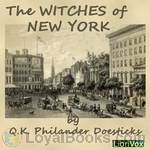 The Witches of New York
The Witches of New York
A humorous account of visits to various fortune tellers, card readers, seers, and other "witches" of New York. Written by Q.K. Philander Doesticks (a.k.a.Mortimer Thomson). | |
By: Queen of Great Britain Victoria (1819-1901) | |
|---|---|
 The Letters of Queen Victoria : A Selection from Her Majesty's Correspondence between the Years 1837 and 1861 Volume 1, 1837-1843
The Letters of Queen Victoria : A Selection from Her Majesty's Correspondence between the Years 1837 and 1861 Volume 1, 1837-1843
| |
By: Queensland Railways | |
|---|---|
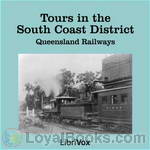 Tours in the South Coast District
Tours in the South Coast District
An early booklet, designed to encourage tourism in the northern parts of New South Wales, and the southern parts of Queensland, particularly the area now in the Gold Coast.(Introduction by Timothy Ferguson) | |
By: R. C. Carton (1853-1928) | |
|---|---|
 Lady Huntworth's Experiment
Lady Huntworth's Experiment
Lady Huntworth is in disguise and under cover as a cook. She entertains a number of men and the comedy ensues.- Summary by Michele Eaton Stage Directions: wib66 Captain Dorvastan: adrianstephens Reverend Audley Pillenger: toddhw Reverend Thorsby: Tchaikovsky Gandy: alanmapstone Newspaper Boy: David Purdy Mr Crayll: Larry Wilson Miss Hannah Pillenger: Annie Mars Lucy Pillenger: Matea Bracic Keziah: April6090 Caroline Rayward: Adrienne Prevost | |
By: R. Lakeland | |
|---|---|
 The Teesdale Angler
The Teesdale Angler
| |
By: R. R. (Rufus Rolla) Lutz (1873-) | |
|---|---|
 Wage Earning and Education
Wage Earning and Education
| |
By: R. Talbot Kelly (1861-1934) | |
|---|---|
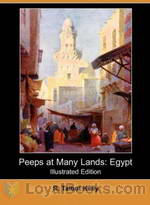 Peeps at Many Lands: Egypt
Peeps at Many Lands: Egypt
A short travelogue of Egypt, this book was written as part of an early 20th century series of travelogues on exotic destinations. | |
By: Rabindranath Tagore (1861-1941) | |
|---|---|
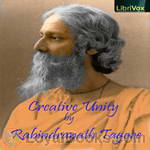 Creative Unity
Creative Unity
Gurudev Rabindranath Tagore talks of the many things he feels is necessary for creativity through joy of unity, he covers many topics like the creative ideal, makes comparisons of creativity between the east and the west, the spirit of freedom and about his idea of an University. | |
By: Rai Bahadur A. Mitra | |
|---|---|
 Bubonic Plague
Bubonic Plague
Dr. Rai Bahadur A. Mitra who was the Chief Medical Officer in Kashmir presents a short treatise on the bubonic plague. The book ranges from a short history of the bubonic plague, including an account of the great 1665 plague in London, through description of the disease, treatment and prevention. - Summary by Larry Wilson | |
By: Ralph Waldo Emerson | |
|---|---|
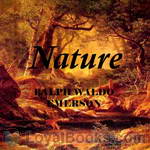 Nature
Nature
“Nature” is a short essay by Ralph Waldo Emerson published anonymously in 1836. It is in this essay that the foundation of transcendentalism is put forth, a belief system that espouses a non-traditional appreciation of nature. Recent advances in zoology, botany, and geology confirmed Emerson’s intuitions about the intricate relationships of nature at large. The publication of “Nature” is usually taken to be the watershed moment at which transcendentalism became a major cultural movement... | |
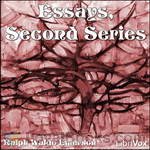 Essays, Second Series
Essays, Second Series
Ralph Waldo Emerson (1803 – 1882) was an American essayist, philosopher, and poet, best remembered for leading the Transcendentalist movement of the mid 19th century. His teachings directly influenced the growing New Thought movement of the mid-1800s. | |
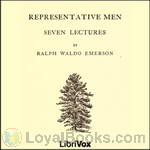 Representative Men
Representative Men
A series of biographical lectures originally published in 1850. Each chapter is a philosophical treatment of the life of an intellectual. The six representatives are Plato, Swedenborg, Shakespeare, Montaigne, Napolean and Goethe. (Introduction by S. Kovalchik) | |
By: Raymond F. (Raymond Francis) Yates (1895-) | |
|---|---|
 Boys' Book of Model Boats
Boys' Book of Model Boats
| |
By: Regina Maria Roche (1764-1845) | |
|---|---|
 Children Of The Abbey
Children Of The Abbey
Published in 1796, this novel tells the trials and tribulations of Amanda and Oscar FitzAlan, brother and sister who have to navigate the world with no money or status, and hardly any connections. They find love, yet, again and again, things block the way to happiness and, worse, destroy Amanda's reputation. This is the story of abuse of power, loyalty, and, ultimately, love in many forms. - Summary by Stav Nisser. | |
By: René Descartes (1596-1650) | |
|---|---|
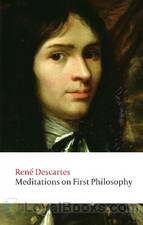 Meditations on First Philosophy
Meditations on First Philosophy
The foundations of modern skepticism and objective thinking are thought to be rooted in the philosophy of Rene Descartes, the French mathematician, philosopher and writer. This great sixteenth century thinker also gave us theories on mind-body dualism and the concept of ethics as the highest form of science. He is considered the Father of Modern Western Philosophy. His theories also led to the emancipation of humanity from the doctrine that the Church is the sole authority over Man and led to a more autonomous idea of the human condition... | |
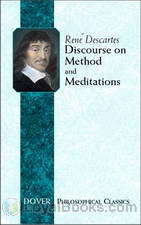 Discourse on the Method of Rightly Conducting One's Reason and of Seeking Truth in the Sciences
Discourse on the Method of Rightly Conducting One's Reason and of Seeking Truth in the Sciences
The Discourse on Method is best known as the source of the famous quotation “cogito ergo sum”, “I think, therefore I am.” …. It is a method which gives a solid platform from which all modern natural sciences could evolve. With this work, the idea of skepticism was revived from the ancients such as Sextus Empiricus and modified to account for a truth that Descartes found to be incontrovertible. Descartes started his line of reasoning by doubting everything, so as to assess the world from a fresh perspective, clear of any preconceived notions. | |
By: Reuben Gold Thwaites (1853-1913) | |
|---|---|
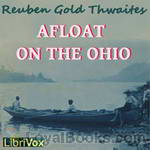 Afloat on the Ohio
Afloat on the Ohio
Afloat on the Ohio, An Historical Pilgrimage, of a Thousand Miles in a Skiff, From Redstone to Cairo.There were four of us pilgrims—my Wife, our Boy of ten and a half years, the Doctor, and I. My object in going—the others went for the outing—was to gather "local color" for work in Western history. The Ohio River was an important factor in the development of the West. I wished to know the great waterway intimately in its various phases,—to see with my own eyes what the borderers saw; in imagination, to redress the pioneer stage, and repeople it. ( From the Preface ) | |
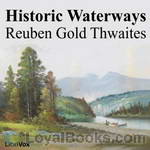 Historic Waterways
Historic Waterways
Historic Waterways, Six Hundred Miles of Canoeing down the Rock, Fox and Wisconsin Rivers.This volume is the record of six hundred miles of canoeing experiences on historic waterways in Wisconsin and Illinois during the summer of 1887. There has been no attempt at exaggeration, to color its homely incidents, or to picture charms where none exist. It is intended to be a simple, truthful narrative of what was seen and done upon a series of novel outings through the heart of the Northwest. If it may induce others to undertake similar excursions, and thus increase the little navy of healthy and self-satisfied canoeists, the object of the publication will have been attained. | |
By: Rev. Gerald T. Brennan | |
|---|---|
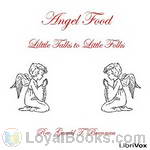 Angel Food: Little Talks to Little Folks
Angel Food: Little Talks to Little Folks
"Angel Food" consists of a series of short sermons for children on the truths of the Catholic Faith - but told with engaging stories, in a style and simple language that children can understand.The author was a parish priest in New York for many years during the mid 1900's. He was the author of several books for children, the most well known being the books in what is considered the "Angel Food" series. | |
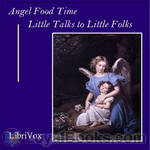 Angel Food Time: Little Talks to Little Folks
Angel Food Time: Little Talks to Little Folks
This is the sixth and final volume of the "Angel Food" Series by Father Brennan. This volume consists of 28 charming selections with titles such as "Six Red Roses", "The Three Little Angels", "A Surprise From Santa Claus" and "The Boy Who Dusted the Devil's Tail". | |
 For Heaven's Sake: Little Talks to Little Folks
For Heaven's Sake: Little Talks to Little Folks
This is the second book in the “Angel Food” series by the author. It consists of a series of short sermons for children, in the form of a charming story. The author was a Catholic parish priest in New York for many years during the mid 1900’s. He was the author of several books for children, the most well known being the books in what is considered the “Angel Food” series. | |
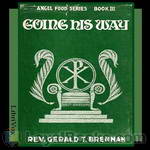 Going His Way: Little Talks to Little Folks
Going His Way: Little Talks to Little Folks
Sermons for children‚ why not? After all, children form a very important part of every congregation. They have souls, and their souls must be saved. Children must be taught; they must be instructed. They must learn to know, love, and serve God. This is the third book in the "Angel Food" series. (Angel Food, For Heaven's Sake, Going His Way) (From the Foreword by Fr. Brennan and Maria Therese) | |
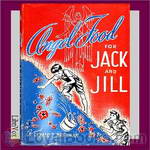 Angel Food For Jack and Jill: Little Talks to Little Folks
Angel Food For Jack and Jill: Little Talks to Little Folks
This is book five of the “Angel Food” series by the author. It consists of a series of 28 short sermons for children, in the form of a charming story. The author was a Catholic parish priest in New York for many years during the mid 1900’s. He was the author of several books for children, the most well known being the books in what is considered the “Angel Food” series. | |
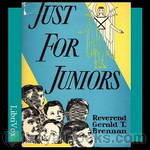 Just For Juniors: Little Talks to Little Folks
Just For Juniors: Little Talks to Little Folks
This fourth addition to Father Brennan's delightful series of "Angel Food" story books brings twenty-eight more tales which, while they excite youthful imaginations, at the same time teach the important lessons of knowing, loving and serving God, and point the way - the children's own little way to heaven. | |
By: Rev. Thomas J. Hosty (1910-2004) | |
|---|---|
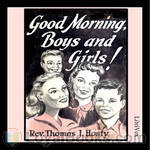 Good Morning, Boys and Girls!
Good Morning, Boys and Girls!
Forty simple, delightful sermons for children. The stories cover a full school year, all Sundays and a few holydays in between. Under such engaging chapter titles, as Chasing Rainbows, Caterpillars, The Best Christmas Gift, and Breakfast of Champions, the book entertains while it instructs. Here Heaven takes on a new closeness as “God’s Home”; the Bible is a collection of “Letters from God”; while the devil is called “a Real Bogeyman.” Such important subjects as beauty of soul, gratitude, Sunday Mass, the foolishness of sin, the Rosary, and temptation are dealt with in a refreshing manner guaranteed to capture the interest of every child. | |
By: Richard Bradley (1688-1732) | |
|---|---|
 The Country Housewife and Lady's Director in the Management of a House, and the Delights and Profits of a Farm
The Country Housewife and Lady's Director in the Management of a House, and the Delights and Profits of a Farm
| |
By: Richard Burton Deane (1848-1940) | |
|---|---|
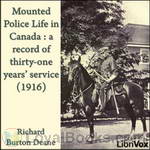 Mounted Police Life in Canada : a record of thirty-one years' service (1916)
Mounted Police Life in Canada : a record of thirty-one years' service (1916)
Learn more about the famous and respected Royal Canadian Mounted Police. This book is the personal recollections of one ‘Mountie’; his life, experiences and trials as an officer in a new frontier – The Canadian Northwest. | |
By: Richard Ferris | |
|---|---|
 How It Flies or, Conquest of the Air
How It Flies or, Conquest of the Air
In these pages, by means of simple language and suitable pictures, the author has told the story of the Ships of the Air. He has explained the laws of their flight; sketched their development to the present day; shown how to build the flying machine and the balloon, and how to operate them; recounted what man has done, and what he hopes to do with their aid. In a word, all the essential facts that enter into the Conquest of the Air have been gathered into orderly form, and are here presented to the public... | |
By: Richard Francis Burton (1821-1890) | |
|---|---|
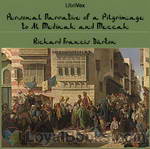 Personal Narrative of a Pilgrimage to Al-madinah and Meccah
Personal Narrative of a Pilgrimage to Al-madinah and Meccah
Sir Richard Francis Burton (1821 – 1890) was an English explorer, translator, writer, soldier, orientalist, ethnologist, linguist, poet, hypnotist, fencer and diplomat. He was known for his travels and explorations within Asia and Africa as well as his extraordinary knowledge of languages and cultures. According to one count, he spoke 29 European, Asian, and African languages.Burton's best-known achievements include traveling in disguise to Mecca, The Book of One Thousand Nights and A Night, an... | |
By: Richard Harding Davis (1864-1916) | |
|---|---|
 Notes of a War Correspondent
Notes of a War Correspondent
Experiences and observations of the journalist in the Cuban-Spanish War, the Greek-Turkish War, the Spanish-American War, the South African War, and the Japanese-Russian War, accompanied by "A War Correspondent’s Kit." | |
By: Richard Jefferies (1848-1887) | |
|---|---|
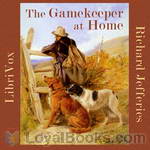 The Gamekeeper at Home
The Gamekeeper at Home
Richard Jefferies (1848 – 1887) was born and spent his childhood on a farm at Coate,Wiltshire. He joined the ‘Wiltshire and Gloucestershire Standard’ in 1868 and also started to write articles and pamphlets on various agricultural issues and local history topics. He is best known for his depiction of English rural life in essays, books of natural history, and novels. This classic of English nature writing gives an idea of the life of a gamekeeper in southern England in the second half of the nineteenth century. | |
By: Richard M. McMurry | |
|---|---|
 Road Past Kennesaw: The Atlanta Campaign Of 1864
Road Past Kennesaw: The Atlanta Campaign Of 1864
“…there can be little doubt that the Federal drive on Atlanta, launched in May 1864, was the beginning of the end for the Southern Confederacy…. The Atlanta Campaign had an importance reaching beyond the immediate military and political consequences. It was conducted in a manner that helped establish a new mode of warfare. From beginning to end, it was a railroad campaign, in that a major transportation center was the prize for which the contestants vied, and both sides used rail lines to marshal, shift, and sustain their forces…... | |